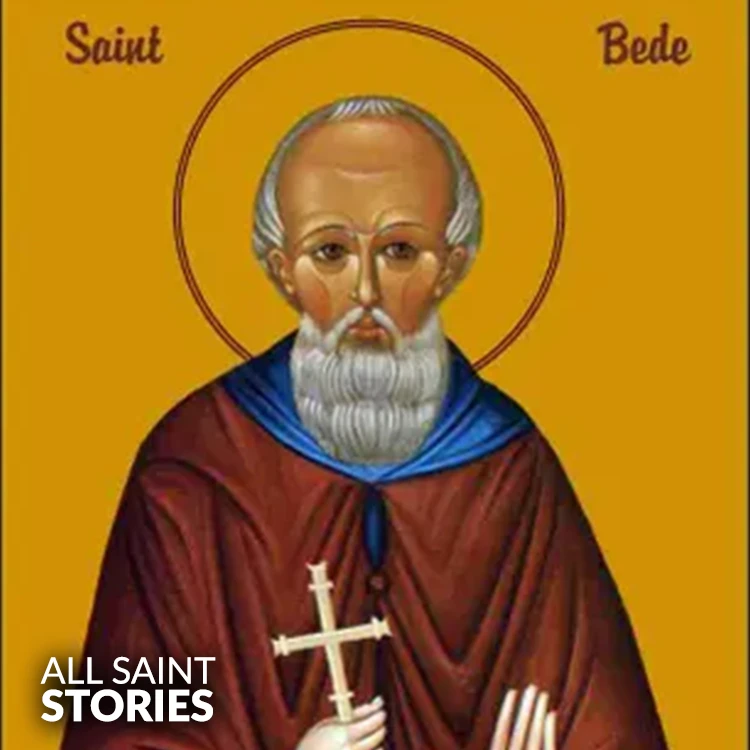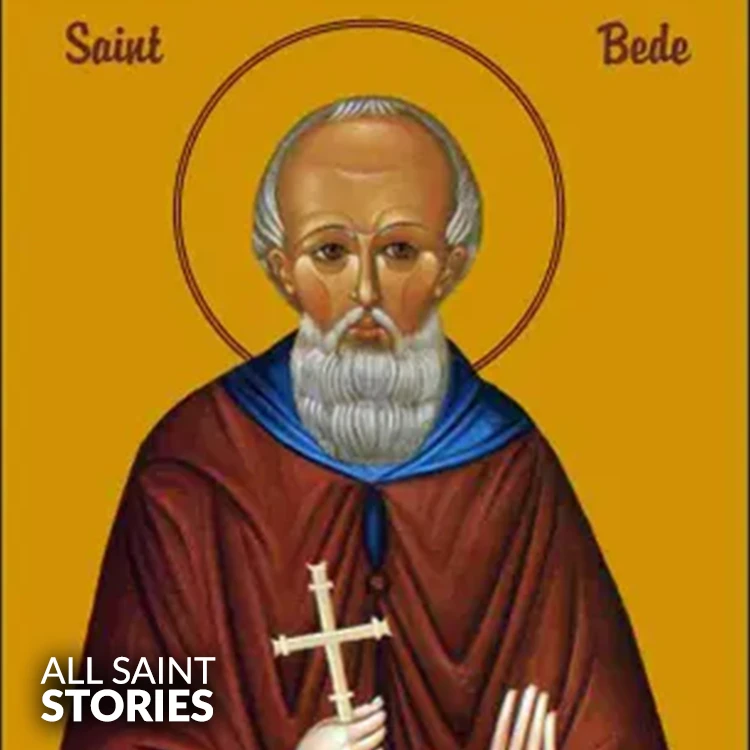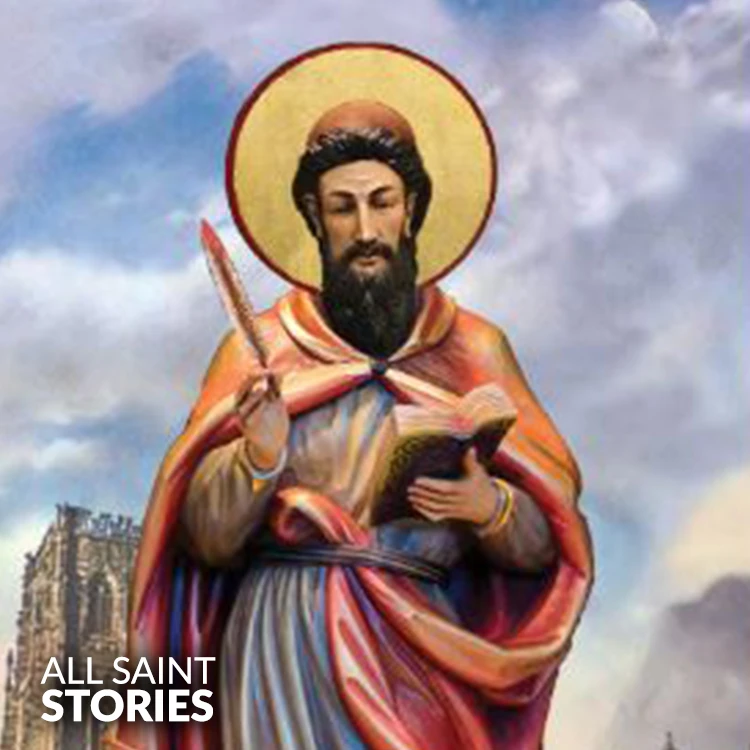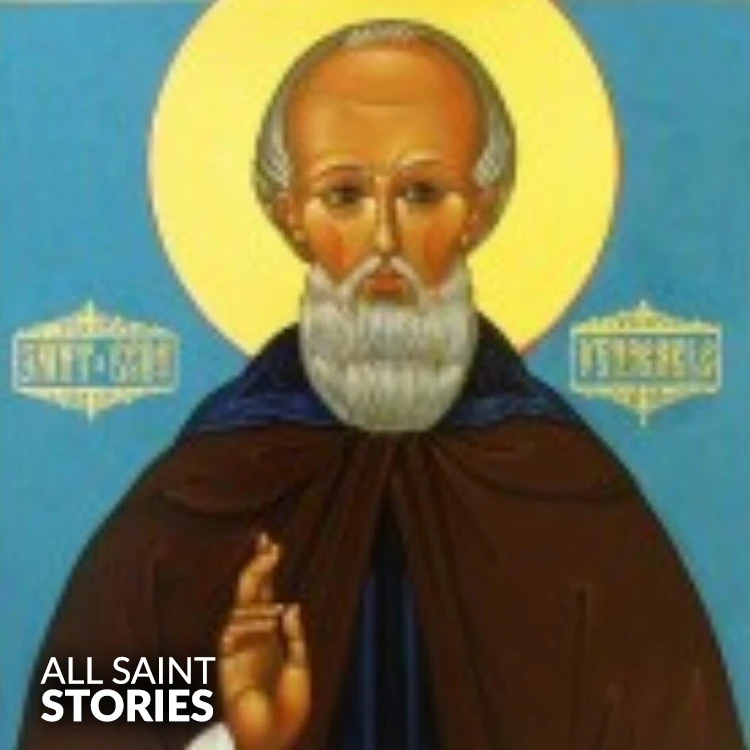Saint Bede, scholar and servant of God, help us to seek wisdom and truth in all that we do. Intercede for us, that we may grow in knowledge and grace, and use our gifts to serve God and others faithfully. May your example inspire us to live with humility and devotion. Amen.
ST. BEDE
ST. BEDE

St. Bede, also known as the Venerable Bede, was an English Benedictine monk, historian, and scholar. He is best known for his work The Ecclesiastical History of the English People, which earned him the title "Father of English History." He was declared a Doctor of the Church in 1899, and his feast day is celebrated on May 25.
St. Bede was born around 672 or 673 AD in the Anglo-Saxon Kingdom of Northumbria, present-day England. At the age of seven, he was sent to the monastery of Wearmouth and later transferred to the monastery of Jarrow, where he spent most of his life. Under the guidance of Abbot Benedict Biscop and later Abbot Ceolfrith, Bede developed a deep love for learning, studying Scripture, theology, history, and science.
Bede was ordained as a deacon at the age of 19 and became a priest at 30. His devotion to scholarly pursuits was unmatched, and he spent his life reading, writing, and teaching. His most famous work, The Ecclesiastical History of the English People, completed in 731, remains one of the most important historical accounts of early England and the spread of Christianity. This work provided detailed information about the conversion of the Anglo-Saxons, the lives of early saints, and the development of the Church in England.
Beyond history, Bede wrote extensively on Scripture, grammar, astronomy, and chronology. His work on the calculation of Easter was widely influential, and he is credited with popularizing the use of the Anno Domini (A.D.) dating system. His deep knowledge and clarity in writing earned him great respect among scholars and the Church alike.
Despite his scholarly achievements, Bede lived a humble monastic life, devoted to prayer and teaching. He never sought personal fame but dedicated his work to the glory of God. His final days were spent translating the Gospel of John into Old English, dictating to his students even as he grew weaker. He passed away on May 26, 735, with his last words being a prayer of gratitude to God.
Bede's legacy lived on through his writings, which were widely copied and studied across medieval Europe. In 1899, Pope Leo XIII declared him a Doctor of the Church, recognizing his immense contributions to theology and history. He remains the only native of Britain to receive this title.
Video Not Found
The information on this website is compiled from various trusted sources. While we aim for accuracy, some details may be incomplete or contain discrepancies.
If you notice any errors or have additional information about this saint, please use the form on the left to share your suggestions. Your input helps us improve and maintain reliable content for everyone.
All submissions are reviewed carefully, and your personal details will remain confidential. Thank you for contributing to the accuracy and value of this resource.
Credits & Acknowledgments
- Anudina Visudhar (Malayalam) – Life of Saints for Everyday
by Msgr. Thomas Moothedan, M.A., D.D. - Saint Companions for Each Day
by A. J. M. Mausolfe & J. K. Mausolfe - US Catholic (Faith in Real Life) – Informational articles
- Wikipedia – General reference content and images
- Anastpaul.com – Saint images and reflections
- Pravachaka Sabdam (Malayalam) – Saint-related content and insights
We sincerely thank these authors and platforms for their valuable contributions. If we have unintentionally missed any attribution, please notify us, and we will make the correction promptly.
If you have any suggestion about ST. BEDE
Your suggestion will help improve the information about this saint. Your details will not be disclosed anywhere.
© 2026 Copyright @ www.allsaintstories.com





 English
English
 Italian
Italian
 French
French
 Spanish
Spanish
 Malayalam
Malayalam
 Russian
Russian
 Korean
Korean
 Sinhala
Sinhala
 Japanese
Japanese
 Arabic
Arabic
 Portuguese
Portuguese
 Bantu
Bantu
 Greek
Greek
 German
German
 Dutch
Dutch
 Filipino
Filipino